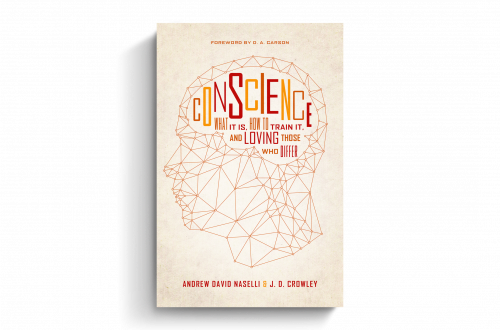 I hadn’t planned on contributing anything to the 50 Shades meme that appears to be taking over the internet. In fact, I was studiously avoiding it. I changed my mind this morning after watching a CBS News package that deals with female “submission” in relationships (see it here).
I hadn’t planned on contributing anything to the 50 Shades meme that appears to be taking over the internet. In fact, I was studiously avoiding it. I changed my mind this morning after watching a CBS News package that deals with female “submission” in relationships (see it here).
The report compares the sado-masochism of 50 Shades of Grey to the submissive roles of two well-known wives, Candace Cameron Bure and Gabby Reece. By the end of the piece, the CBS journalists seem scandalized by Bure and Reece, but it is not clear whether they are equally troubled by 50 Shades of Grey.
I have never seen the movie or read the book 50 Shades of Grey, and I never will. But it is obvious that this is not an apt comparison. I have read enough about 50 Shades to know that the perversions therein have nothing to do with the “submission” spoken of by Bure. Bure is a Christian and is very clear that her use of the term derives from scripture (e.g., Eph. 5:22; Col. 3:18; 1 Pet. 3:1). If someone wants to disagree with scripture, that’s one thing. But to compare the biblical concept to the perversions of 50 Shades is either highly dishonest or severely misinformed.
Why is it a distorted comparison? Probably the most obvious thing is that the biblical teaching on submission within marriage is just that—within marriage. The norm for all sexual relationships in scripture is the covenant of marriage. 50 Shades focuses on a sexual relationship outside that covenant. The Bible calls women to be subject to their “own husbands” (Eph. 5:22), not to the perverted and predatory sexual appetites of men who aren’t their husbands. In fact, it is the willingness of women to submit to the sexual whims of men not their husbands that produces so much pain.
In the Bible’s view of marriage, the sexual relationship between husband and wife is not exploitative or abusive. Rather, it is one that keeps covenant and that puts the interests and needs of one’s spouse before one’s own interests and needs (1 Cor. 7:1-6). The biblical framework produces a safe, loving environment for sexual expression not the repressive perversion of 50 Shades.
Another enormous difference is that the Bible’s teaching on submission has nothing to do with coercion or abuse. And it is perhaps on these two points that the difference between the biblical view and the perversion of 50 Shades is most obvious.
The Bible does teach an economy of roles within marriage that involves the husband as leader and the wife as the main supporter and “helper” of that leadership (e.g. Gen. 1:18; Eph. 5:22-33). The Bible nowhere commands men to coerce women to submit to them. In other words, biblical submission enlists an all-volunteer force. There is no draft. That is why the commands for wives to “be subject” to their own husbands are directed to the wives. She is called to recognize the leadership role of her husband, but the husband is never called on to make her submit. So an accurate view of biblical submission understands that there is no coercion involved.
Related to this is the issue of abuse. Like I said, I haven’t read 50 Shades, but from what I’ve read about it there is abuse involved between the central characters of the story. Biblical submission does not condone or allow any form of abuse. In scripture, no human authority is an ultimate authority. The only ultimate authority is God. When we are confronted with a human authority that contradicts God’s authority, we are required to recognize and submit to God’s ultimate authority. That is why the apostles defied the human authorities when those authorities forbade them from preaching the gospel. In defiance, the apostles replied, “We must obey God rather than men” (Acts 5:29).
The same principle is true in a wife’s relationship to her husband. His authority is not absolute. If he ever tries to lead her into abuse or sin, she must obey God rather than him. Why? Because she recognizes God’s authority as ultimate. 50 Shades may require a woman to submit to abuse and sin, but the Bible does not.
The Bible teaches that our marriages are supposed to be pointers to another marriage—Christ’s marriage to his bride the church (Eph. 5:32). Biblical marriage calls husbands to love their wives as Christ loves the church. That means that the husband is called to live self-sacrifically for his bride. He is to lay down his life for his bride, just as Jesus did for his. He is to lead her in a way that serves her and enables her potential and gifts. In other words, he has to be like Jesus. This is a far cry from 50 Shades, but it is the biblical truth.
I suppose it is easy to be confused about what the Bible actually says when there is so much misinformation out there about it. But on this issue we need to be careful that our consciences are bound to truth and not to the kind of distorted comparisons represented in this CBS News package. The truth of the matter is that the biblical vision of marriage and sexuality is given to us for our good. And we can only fully enjoy this gift when we recognize the covenant-keeping complementarity that God intends for marriage. God bless Bure for standing so boldly on this point. If we love our neighbors and care about the common good, we will do the same.




9 Comments
senecagriggs
Excellent post Denny.
Denny Burk
Thanks!
Pingback:
Pingback:
Pingback:
Pingback:
Kathryn Elliott Stegall
Why do complementarians continue to use the Hebrew word ‘ezer’ to mean ‘one of inferior position who assists a superior’? That is not the meaning of the word! What’s up with that?
Brett Cody
Kathryn,
I don’t think complementarians do use the Hebrew word ‘ezer’ in the way you think they do…please elaborate your position.
Kathryn Elliott Stegall
Brett, this quote from Denny’s article above seems to use the word in the way I’ve asserted, “The Bible does teach an economy of roles within marriage that involves the husband as leader and the wife as the main supporter and “helper” of that leadership (e.g. Gen. 1:18; Eph. 5:22-33).” ‘Economy of roles’ seems to be a euphemism for superior/inferior positions or roles. I do not believe it is man’s leadership that woman was created to ‘help’, but rather man’s aloneness and God’s commission to humankind to fill and subdue the earth. We should look to how ‘ezer’ is used throughout the OT for our understanding of the word’s meaning in Gen.1:18.
BTW, I agree entirely with Denny’s main argument that there is nothing biblical about 50 Shades…